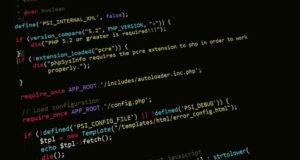
Don’t Risk the Complications of a DIY Will
Ensuring that your wishes are carried out after passing is essential. However, the risk involved in creating a DIY Will can lead to unexpected complications. While DIY wills might seem like a quick and cost-effective solution, these documents come with risks that can create costly issues for your loved ones.
The price tag associated with a professional will is often a barrier. Preparing an essential will with a lawyer can range from $100 to several hundred dollars, with more complex cases costing even more. On the other hand, DIY will kits are available online for as little as $20. It’s no wonder the cheaper option tempts some people. It seems like a cost-saving measure. However, it often turns out to be anything but that.
Creating a will seems simple enough. However, legal standards must be followed. DIY kits often leave too much room for error, especially regarding proper witnessing, explicit language and meeting legal requirements.
One of the most frequent mistakes is failure to witness the will properly. Many people are unaware that two independent witnesses who do not benefit from the will must be present. Errors like misspelled names, incorrect property descriptions, or even failing to sign the document correctly are all common. These mistakes can invalidate the will, leading to additional expenses and complications.
The complications of an invalid or poorly crafted DIY will are not worth the risk. When a will is ruled invalid, a person’s estate is divided based on state laws rather than the deceased’s wishes, which could mean loved ones miss out on what was intended for them. Legal battles often arise among family members, leading to strained relationships and high legal fees.
A report from Co-operative Legal Services found that over 38,000 families face extended probate issues each year due to poorly prepared DIY wills. In many cases, legal fees drain a large portion of the estate, reducing the inheritance the deceased intended to pass on.
A DIY will seem sufficient if you have a straightforward estate, like leaving everything to one person. However, DIY will often fall short as soon as there are additional complexities, such as children from previous relationships, business ownership, or property in multiple locations.
These kits don’t cover complex issues like inheritance tax planning, specifying conditions, or accounting for family changes like marriage or divorce. A basic DIY will also lacks flexibility; if your situation changes, such as remarrying or having additional children, it may not account for these changes unless it’s entirely redone.
Although a DIY will initially seem cost-effective, many families discover the hidden costs once probate begins. If the will is invalid or unclear, family members may face extended probate processes, which increase legal fees and administrative expenses.
As noted in an article from The Guardian, the complications from an ineffective will can eat away as much as 10% of an estate’s value. For an estate worth $160,000, this means $16,000 lost to fees that could have been avoided.
Using a qualified estate planning attorney is the best way to ensure that your will is comprehensive and legally sound. These professionals can provide the legal guidance needed to meet state standards and to incorporate any specific wishes or complex situations into your will. They can also offer peace of mind by drafting a will that remains valid as your life circumstances change.
Some organizations offer cheaper will-drafting options. However, it is essential to ensure that any service you choose is regulated. If you work with a lawyer, look for someone accredited with the appropriate legal organization for added security.
When drafting a will with an attorney, you gain access to their knowledge and experience handling the legal requirements that a DIY kit might miss. Lawyers are well-versed in laws that can affect your will and estate, such as rules on estate taxes, property division and inheritance rights for unmarried partners. They can help structure a will that protects your loved ones from potential legal disputes or lengthy probate processes.
Creating a will with an estate planning attorney can make all the difference for your loved ones. Don’t risk the complications of a DIY will. If you would like to learn more about wills and trusts, please visit our previous posts.
Reference: The Guardian (Feb. 9, 2015) “The dangers of DIY wills”
Image by wiredsmartio







